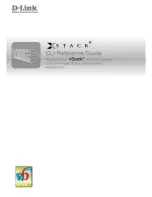
256
Tasks at a glance
Enabling logging of IPsec packets
Configuring the DF bit of IPsec packets
Configuring SNMP notifications for IPsec
Configuring an ACL
IPsec uses ACLs to identify the traffic to be protected.
Keywords in ACL rules
An ACL is a collection of ACL rules. Each ACL rule is a deny or permit statement. A permit statement
identifies a data flow protected by IPsec, and a deny statement identifies a data flow that is not protected
by IPsec. IPsec compares a packet against the referenced ACL rules and processes the packet according
to the first rule it matches.
•
Each ACL rule matches both the outbound traffic and the returned inbound traffic.
•
In the outbound direction, if a permit statement is matched, IPsec considers that the packet requires
protection and continues to process it. If a deny statement is matched or no match is found, IPsec
considers that the packet does not require protection and delivers it to the next function module.
•
In the inbound direction:
{
Non-IPsec packets that match a permit statement are dropped.
{
IPsec packets destined for the device itself are de-encapsulated. By default, the de-encapsulated
packets are compared against the ACL rules. Only those that match a permit statement are
processed. Other packets are dropped. If ACL checking for de-encapsulated packets is
disabled, the de-encapsulated packets are not compared against the ACL rules and are directly
processed by other modules.
When defining ACL rules for IPsec, follow these guidelines:
•
Permit only data flows that need to be protected and use the
any
keyword with caution. With the
any
keyword specified in a permit statement, all outbound traffic matching the permit statement will
be protected by IPsec. All inbound IPsec packets matching the permit statement will be received and
processed, but all inbound non-IPsec packets will be dropped. This will cause all the inbound traffic
that does not need IPsec protection to be dropped.
•
Avoid statement conflicts in the scope of IPsec policy entries. When creating a deny statement, be
careful with its matching scope and matching order relative to permit statements. The policy entries
in an IPsec policy have different match priorities. ACL rule conflicts between them are prone to
cause mistreatment of packets. For example, when configuring a permit statement for an IPsec
policy entry to protect an outbound traffic flow, you must avoid the situation that the traffic flow
matches a deny statement in a higher priority IPsec policy entry. Otherwise, the packets will be sent
out as normal packets. If they match a permit statement at the receiving end, they will be dropped
by IPsec.
Mirror image ACLs
To make sure SAs can be set up and the traffic protected by IPsec can be processed correctly between
two IPsec peers, create mirror image ACLs on the IPsec peers.
















































